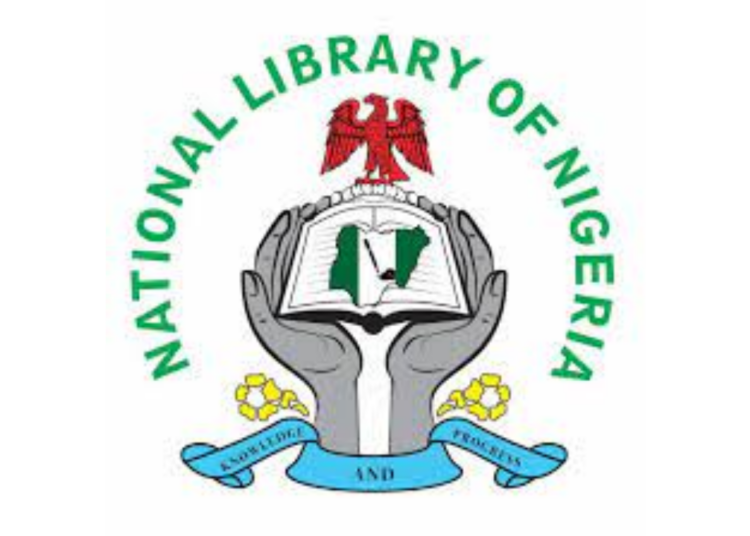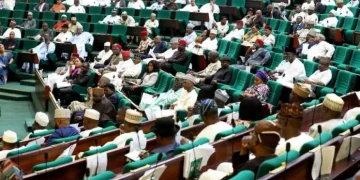Chief Executive Officer (CEO), of the National Library of Nigeria (NLN), Professor Chinwe Anunobi has said about a thousand of the library’s publications, including rare and vulnerable resources in its Lagos branch ‘strong room’ have been digitized.
Anunobi disclosed this during a media briefing to mark her second year in office, whilst highlighting the library’s achievements and challenges.
She said the decision to focus digitization efforts, first, in Lagos, is to ensure that the rich, heritage and historical publications in the branch, dating back to the pre-colonial and post-Independence eras, are properly preserved.
“These publications form ‘the strong room’ with newspapers from the 1950s and 60s, now in a deteriorative state. There is need for us to begin to address them first. We need to preserve them. We are not just digitizing for the fun of it, but because we want to preserve and create access to these old publications that you can’t find anywhere else but the library. We are going to get to other branches.”
In spite of the strengthening of the apex library’s virtual services, including the virtualization of its International Standard Book Number (ISBN), the International Standard Serial Number (ISSN), the visibility of bibliographic records of all the library’s resources and the automation of the cataloguing system, which has made the processing of 4,688 acquired volumes/publications, and 53,360 legal deposits resources possible, the National Virtual Library of Nigeria, requires massive awareness to attract users.
“The national library before now which the Nigerian public knows, is the one that operates in the physical world. So, whatever they need they must come to the physical space.
“We get more traction from our social media pages than the virtual library, which holds 23 links to Open Access Book databases, 30 Open Access Reference Materials databases, 113 links to Open Access Journals, 432 links to monographs among others.”
In addition to the free distribution of its informative placeholders, Anunobi urged media to aid in the sensitization of the Nigerian public on the virtual publications and services of the library.
Meantime, she noted that the partnership with Bulgaria in the documentation and preservation of publications has slowed due to absence of a permanent library facility that can house the active restoration and healing of vulnerable resources.
“We signed a MoU with Bulgaria, to do remedial work – healing of sick books. This is because Bulgaria has manuscripts dating back to the 12, 14 and 15th century; brittle resources which it had remedied. The collaboration will focus on training the National Library on how to do such remedial work, especially in our strong room, which houses many brittle works.
“We are delaying that process because we do not have a national library, It is not right that as the library marks 60 years in 2024, we are seen to have no permanent site.
Addressing the challenges of operating under an archaic law which allows the library only an advisory role, Anunobi is optimistic that when efforts in pushing for a new law that grants the library supervisory role succeeds, it will enable the library’s implementation of Reading/Library Hours in schools.
“The new law passed all the stages but wasn’t assented to by the new administration before the 30 days (review time) elapsed. It came in while the new administration was assuming office, and was displaced by other things, so, it’s gone back to the senate.
“Presently, our duty (as a library) is to advice on library management. The new law will empower us to supervise, and by the time we have the mandate to supervise, we will tell them this is what is supposed to be. We will get there,” said the CEO.
On the status of the abandoned permanent library edifice, Anunobi commended the new Minister of Education, Tahir Mamman’s enthusiasm and approach to the project.
“Consultants, contractors and the ministry are working to put papers right, then tackle them in stages. The minister has told the Attorney General of the Federation, that the completion of the National Library Headquarters is a flagship project for this administration. But then, we have to perfect the documents. When we perfect the documents, and agree with the contractor and consultants on what will be, it will go to the Federal Executive Council (FEC) for approval. If approved by FEC, it will move to PPP to approve, at a certain budget, then returns to FEC for approval. With the minister’s approach, I believe the process will be faster this time around,” concluded Anunobi.
We’ve got the edge. Get real-time reports, breaking scoops, and exclusive angles delivered straight to your phone. Don’t settle for stale news. Join LEADERSHIP NEWS on WhatsApp for 24/7 updates →
Join Our WhatsApp Channel










